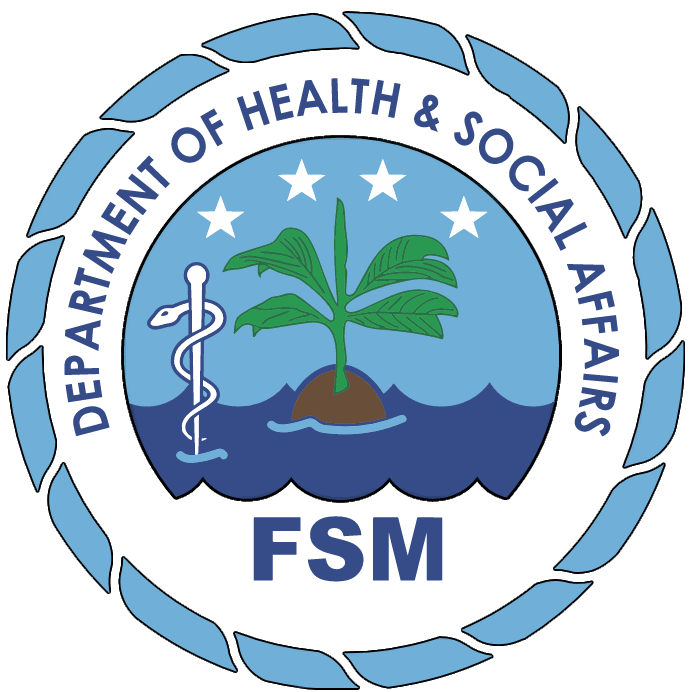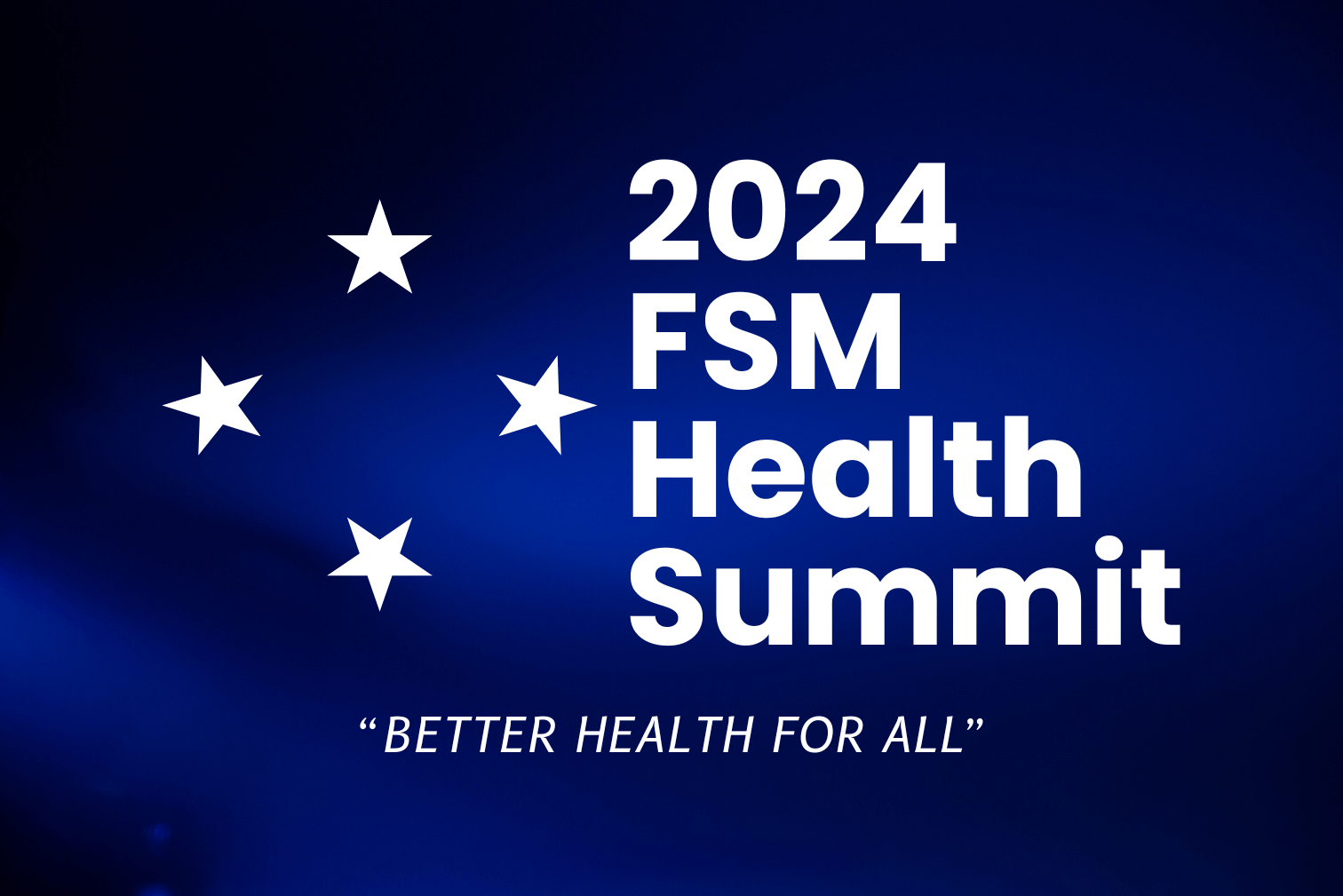Announcing the 2024 FSM Health Summit
Theme: Better Health for ALL
Overview
The FSM Department of Health & Social Affairs (FSMDHSA) is convening a National Health Summit from April 22-26, 2024. The Health Summit will be attended by the leaderships from the National and State Governments as well as key stakeholders. Technical and resource experts will present to the leadership recommendations as to how the FSM will achieve better health for all beyond 2033.
Date & Venue
The date of the 2024 Health Summit is April 22-26, 2024 and the venue is Palikir in Pohnpei, the capital of the FSM National Government.
Purpose
To engage the leadership and key stakeholders in discussion leading to the formulation of strategic policies and recommendations to advance the health of the nation moving forward.
Participants
The expected participants of the Summit are Chief Executives of governments (President, Governors, Speakers/President), health policy makers, leaders from partner sectors (education, agriculture, environment, resources, faith-based organizations, NGOs, academia), development partners, researchers, and observers.
Key local technical staff will be the main facilitators of the technical workshops. Technical experts from WHO, USDHHS, SPC, UN Agencies, as well as other partners will also participate in the Health Summit as resource personnel and advisors.
Format & Content
The five-days Health Summit will start out with three days of technical meetings/workshops
(April 22-26, 2024) and will be structured by the following main topics:
- Human Resources for Health
- Health Care Financing
- Digital Health
- Primary Health Care
- Tertiary Care Services
- Social and Environmental Determinants of Health
- Healthcare Facility Upgrades
- Diagnostics and Biomedical Equipment Upgrades
- Age, Gender, and Life-Course Appropriate Services
The first three days of the Health Summit are dedicated to technical workshops and meetings in which local and visiting experts will present the current state of the health care system to move towards having a common framework of where things should be heading in the coming years. The last two days of the Health Summit will be mainly presentations of the outcomes of the technical work groups. There will be plenary and concurrent sessions throughout the first three days of the Health Summit.
Objectives
At the end of the five-days Health Summit, participants are expected to:
- Understand the challenges impacting health development in the FSM;
- Have general understanding of the current capacity of the healthcare delivery system;
- Better appreciate the concept of Universal Health Coverage and its application to the FSM; and
- Reach a common understanding of what the next steps should be to improve the overall health services in the FSM.
Expected Outcome
At the end of the Health Summit, the Chief Executives (President, Governors, and Speakers/President) will sign a communique that will contain the recommendations from the Health Summit. These recommendations will be used for the drafting of the Framework for Health Development in the FSM that will guide decision making and policy making in the coming years.
View original document>>





